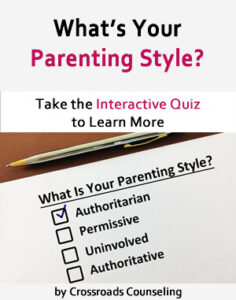According to the CDC, children and teens are especially susceptible to stress during times of trauma, pandemics are no exception. So, while it’s important to focus on keeping your kids physically healthy right now, it’s also crucial to pay attention to their mental health.
Think about how much life has changed for kids in the last several months. Chances are, they had to switch to virtual learning back in the spring. Now, they may be back in school with strict rules. Or they may still be eLearning.
They’ve been away from friends, and maybe even certain family members, all because of a virus they may not fully understand.
So, paying attention to some of the issues that might be surfacing in kids can give you a better idea of when to reach out to get them help. What are some of those issues?
1. Behavioral Issues
You might see kids acting out more or having more “meltdowns” throughout the day. This could very well be because they have so many emotions and feelings that they don’t fully understand or can’t process.
Many times, when a child acts out, it’s because they aren’t sure how else to express themselves. If your child is doing it frequently, they may be trying to tell you something.
2. Digital Addiction
Everyone needs to feel a sense of connection. That’s especially true for kids and teens. If your child seems to be on their mobile device more than ever before, they could simply be trying to feel some kind of connection with their friends.
But there are some potentially dangerous drawbacks to constantly spending time on a phone.
3. Dangerous Mobile Habits
In an effort to feel more connected, kids are focusing on apps like TikTok and Snapchat. While these can, indeed, be great ways to stay in touch with friends, they are also hot spots for dangerous online behavior, including cybercrimes and sexual activity. If your child is on their phone all the time, make sure you’re monitoring what they do as much as possible.
4. Feelings of Uncertainty
It’s safe to say that everyone has been struggling with uncertainty throughout this pandemic. For children, though, uncertainty can lead to questions about their safety.
If your child doesn’t feel safe, their fears can manifest in different ways. Talk to them about the situation (in an age-appropriate way) and reassure them of the things everyone is doing to ensure they’re safe.
5. Clinginess
If you have had to stay home from work, your child might see it as an upside. But, being home all the time combined with the stress of this pandemic has caused a cocktail for anxious thoughts, even in young children. If you are stressed or there is tension in your household, it can be easy for your child to pick up on it.
Therefore, if you notice your child is clingier than usual, it could be because of the stress within your own home, and their need to feel close and protected.
6. A Lack of Control
It’s not uncommon for adults to feel like they don’t have control right now, but it can be especially problematic with children. If your child feels like they don’t have a handle on what’s going on in their lives, they could easily become anxious.
Talk to your children about what they have control over, like wearing a mask or social distancing, and how those things can protect them.
7. An Increase in Mental Health Issues for Those Already Struggling
If your child had already been diagnosed with anxiety, depression, or another mental health condition, the effects of this pandemic can make their symptoms much worse and more intense.
You’re not alone in trying to navigate how to get your children through this. If you notice your child exhibiting any of these signs, don’t wait to reach out for help. Please read more about child and teen therapy by clicking here and contact us soon for a consultation.
Begin Working With A Child Therapist in Phoenix Scottsdale, and Online in AZ
Our team of caring therapists offers a 20-minute complimentary phone call. You can ask all the questions you have and see if counseling at our Phoenix, Anthem, Scottsdale.and online in Arizona is the right fit for you. To start your therapy journey, please follow these simple steps:
- Contact Crossroads Counseling for a complimentary 20-minute phone consult
- Meet with a therapist trained in child therapy
- Start receiving the support your relationship deserves
Feel free to call contact us at by calling 623-680-3486, texting 623-688-5115, or emailing info@crossroadsfcc.com.







